Shedding Light on the Economic Pressures in Nigeria: Preventing Tragedies and Promoting Well-being
Welcome to our website, where we shed light on a tragic incident that occurred in October 2022, involving an elderly man who took his own life by jumping off the 3rd Mainland Bridge in Lagos. This heart-wrenching event serves as a powerful reminder of the economic pressures faced by many citizens in Nigeria and the urgent need for collective action. In this article, we delve into the underlying factors contributing to such desperate actions and explore potential solutions that the government can adopt to combat this distressing trend.
Understanding Economic Pressures:
1. High Unemployment Rates: Nigeria has been grappling with persistently high unemployment rates, particularly affecting the younger and older population. The lack of job opportunities leads to financial instability, hopelessness, and a sense of despair.
2. Inflation and Rising Cost of Living: The country has experienced significant inflation, resulting in an increased cost of living. Basic necessities, housing, healthcare, and education have become increasingly unaffordable for many citizens, pushing them to the brink of desperation.
3. Limited Social Safety Nets: The availability and effectiveness of social safety nets in Nigeria remain limited. Safety net programs, such as unemployment benefits, healthcare assistance, and cash transfer schemes, are crucial in providing support and relief to those facing economic hardships.
Combating the Crisis:
1. Job Creation and Economic Diversification: The government must prioritize job creation and economic diversification to address the issue of unemployment. By investing in key sectors such as agriculture, manufacturing, technology, and entrepreneurship, new job opportunities can be created, reducing the burden of economic pressure on citizens.
2. Enhancing Social Safety Nets: It is imperative for the government to strengthen social safety nets to provide a safety net for vulnerable individuals and families. Effective safety net programs can include unemployment benefits, targeted cash transfers, and subsidized healthcare, ensuring that no citizen is left without basic necessities during times of economic hardship.
3. Financial Education and Support: Promoting financial literacy and providing access to financial support can empower individuals to better manage their finances and navigate economic challenges. The government can facilitate financial education programs and establish microfinance initiatives to provide small loans and financial assistance to those in need.
4. Mental Health Support: Mental health services should be prioritized to address the psychological toll of economic pressure. Establishing counseling centers, helplines, and community support networks can provide individuals with the necessary support and resources to cope with mental health challenges.
5. Collaboration with Non-Governmental Organizations: The government should collaborate with non-governmental organizations (NGOs) and civil society groups to amplify efforts in combating economic pressures. NGOs can play a vital role in delivering targeted support, providing skills training, and advocating for policy changes that address the root causes of economic distress.
Conclusion:
The tragic incident of an elderly man taking his own life due to economic pressures underscores the urgent need for comprehensive measures to combat this distressing trend in Nigeria. By prioritizing job creation, enhancing social safety nets, promoting financial education, providing mental health support, and fostering collaboration with NGOs, the government can take significant strides towards alleviating economic pressures on its citizens. Together, we can build a society where economic well-being is accessible to all, and tragedies like these become a thing of the past.
